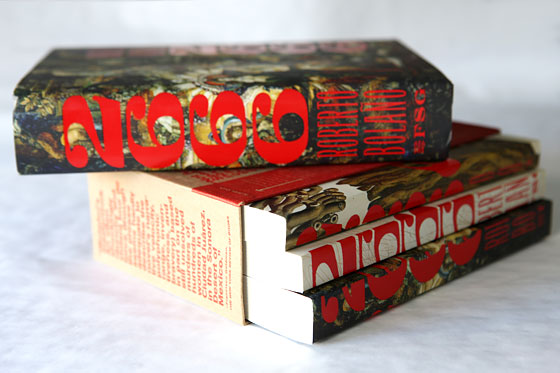 by Roberto Bolaño
by Roberto BolañoI guess the question of the day is: Am I 3/5 or 1/3 through this book?
In the third section of this novel, the narrative is all about fate, Oscar Fate that is, who is also strangely referred to as Quincy Williams for a few pages. Fate is a reporter for a New York 'black power' magazine, whose mother dies before he has to go to Detroit to work on a story. Once that is finished, he is sent by his magazine to Santa Teresa, not to report on the killings, but to cover a boxing match between a Mexican light heavyweight, and a New Yorker.
This part of the novel has one feature that struck me as very odd, and that is how it dealt with celebrity. For the first time, the names dropped were not of authors and philosophers, but of movie makers and the like - there's a discussion of Roberto Rodriguez's first movie, which predates "El Mariachi" and goes without his name on the credits. Woody Allen is accused of being one of the "Jews who run Hollywood." Yet, when Fate goes to interview the co-founder of the Black Panther movement, his name is Barry Seaman. I'm not sure why the switch would have been necessary - perhaps because Seaman is actually, briefly, a character in the book, while everyone else is simply discussed. Still, I found that strange.
It is not until the very end of this section that the story begins to over-lap with any of the others in the novel so far, and it would appear that the bridge between the stories is Amalfitano, who has cameos in this section, and his daughter has an important role towards the end.
I think what I am enjoying most about this book so far is the way that it goes off on tangents - Barry Seaman/Bobby Seale is given a long speech. Fate reminisces about interviewing the Mohammedan Brotherhood. Every character seems to have a lengthy, and usually unimportant story to tell.

No comments:
Post a Comment